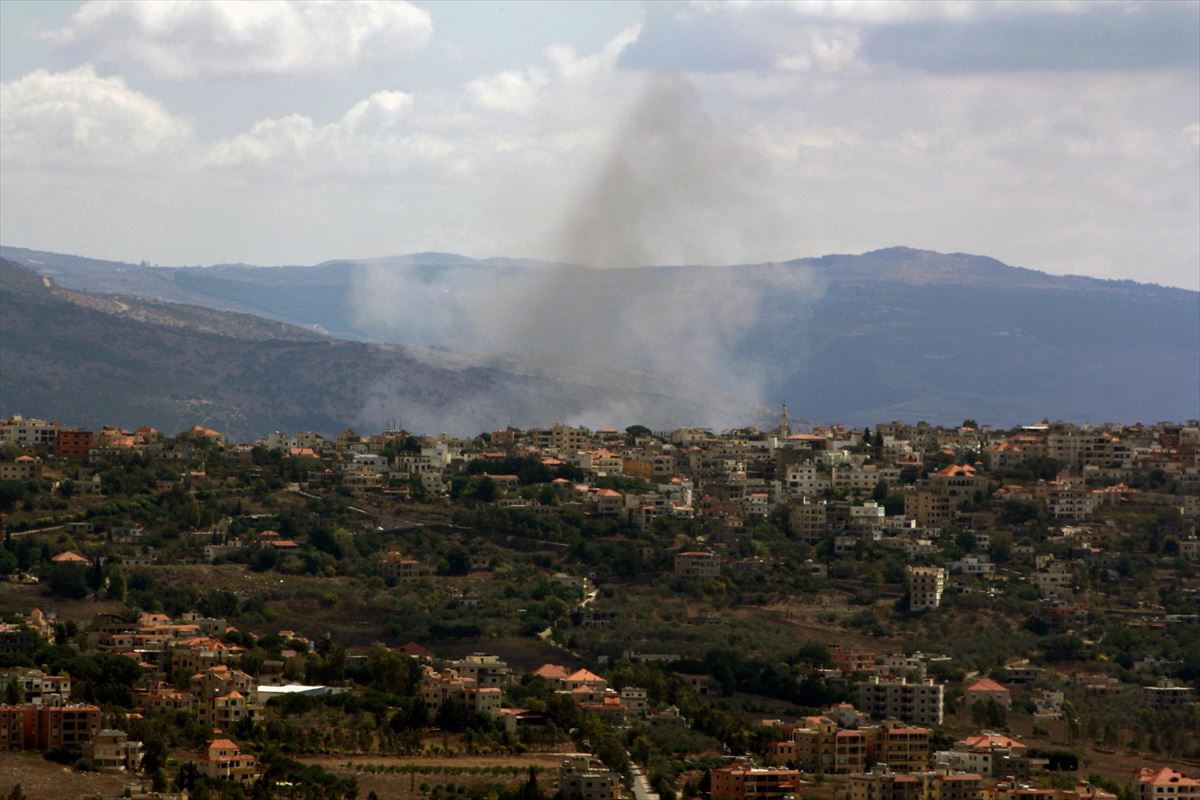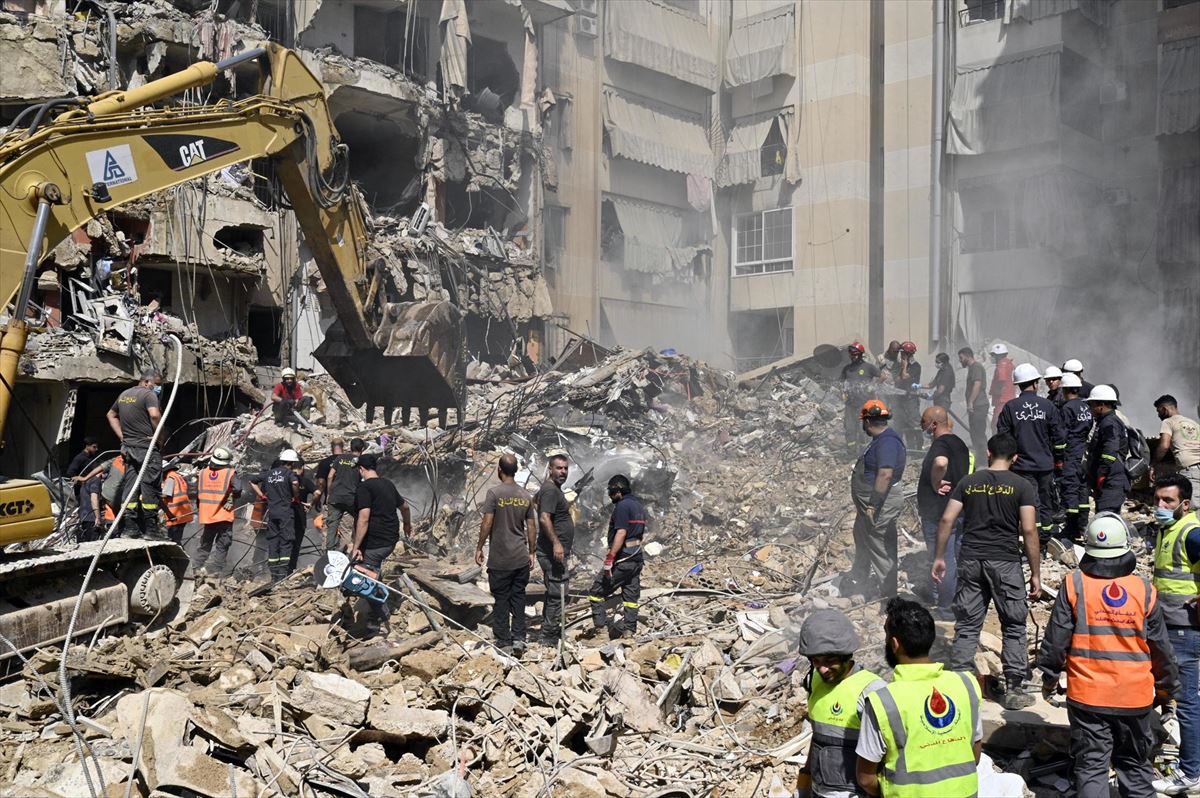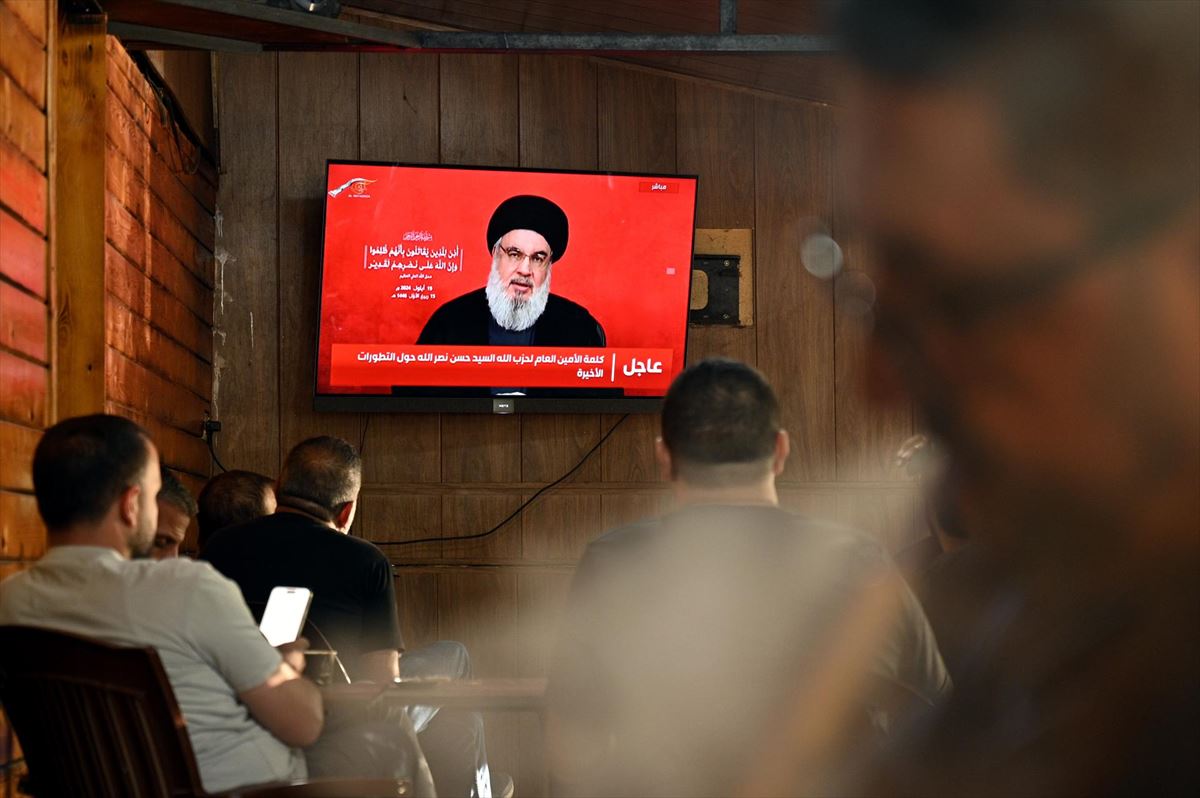Israel and Hezbollah have fired numerous rockets and missiles at each other in recent days. One of Hezbollah’s attacks reached Haifa, and Israeli strikes have killed dozens in Lebanon in recent days. However, the conflict between the two is not new.
Although the situation was already critical, the panorama has become even more tense in recent days, especially in the Middle East between Israel and Lebanonafter the Israeli attacks in Lebanon in recent days and that of Hezbollah on Israeli territory.
He conflict between both states it’s not newhas gone through harsher and more subtle phases since the 1970s, especially as Israel has repeatedly sought to take over areas of Lebanon (in 1978with the ‘Litani Operation‘and inside 1982with the siege of BeirutFor example).
Hezbollah It was founded that year, in 1982, and over the years has become the strongest Lebanese militia. ‘Operation Intervention’ in 1993 and ‘Operation Grapes of Rage’ in 1996 were the main campaigns that Israel launched to confront Hezbollah.
After a few years of a tense calm, tensions between the two have flared up again in recent months, a day after Israel launched its offensive on Gaza in October. And it was inevitable that Hezbollah would step up its offensive against Israel in support of the Palestinians. Hassan Nasrallah, leader of Hezbollah, has repeatedly assured that the militia will stop attacking Israel if Israel stops attacking Palestine.
In this context, thousands of Israelis (60,000 according to Israel) have been forced to leave their homes as a result of clashes between the two forces in the north of Israel, on the border with Lebanon. Precisely, the main condition that Israel sets for the cessation of its armed actions against Lebanon is that those who have been forced to leave the country return home.

Increasingly violent attacks
The mutual attacks are therefore becoming more frequent, more violent and more far-reaching.
The days 17 And 18 In September, Israel launched a mass attack unprecedented technological sophistication. In theory, he manipulated hundreds of electronic devices into the hands of Hezbollah members to explode simultaneously. These devices are common in many countries where telephone and internet networks are unstable, such as Lebanon, and civilians were among the dead and wounded. In total, more than 30 people were killed and more than 3,000 wounded during the two days of attacks.
The past day 19Israel stepped up more than 50 bombings in southern Lebanonaccording to the army, against Hezbollah’s “military buildings” and “a weapons depot.” In its note, the Israeli army explained that its goal was to “bring security to northern Israel so that residents could return to their homes,” referring to those who remain evacuated since the intensification of the conflict with Hezbollah.
The conflict finally reached the capital September 20when Israel bombed Beirut, killing at least 50 people and wounding more than 60. The target of the attack was Ibrahim Akil, a senior Hezbollah official whose death has been confirmed by the Israeli military. According to Israel, 15 other senior militia officials were also killed in the attack.
Hezbollah, for its part, has responded harshly to these attacks by shooting dozens of projectiles against Israel on Saturday and Sunday. One of the attacks reached the Israeli city of Haifa, 60 kilometers from the border.

The solution seems far away
The greater the confrontation, the more difficult it is to suppress it, and the situation between the two forces is of maximum tension.
Israeli Prime Minister Benjamin Netanyahu assured the public in a televised message that “Hezbollah has suffered a series of blows that it could not imagine” and has announced new attacks unless the attacks in the border areas stop.
“If Hezbollah has not gotten the message, I promise it will. We are determined to ensure the return of our residents to their homes in the north of the country,” Netanyahu said.
For his part, the deputy secretary of Hezbollah Naim Qassemannounced on Sunday that the Shiite partisan militia had entered “a new phase of intervention” with Israel. Speaking at the funeral of commanders killed in the Beirut attack, he added that “they have become stronger after the attacks,” that they will continue to protect Gaza and that they will kill Israelis “where they are expected and where they are not.”
Hezbollah leader Hassan Nasrallah was also clear after the massive attack on September 19, warning that Israel has “violated all the rules” and “crossed all the red lines,” for which it will face “just retaliation and sanctions.”

The world as a spectator, institutions ask for peace
Israel’s massacre in Gaza is one of those conflicts that are reported live every day on the networks and in the media, and this age-old conflict that broke out in Lebanon and with Hezbollah is going in the same direction. On the screen, the same victims as always: civilians, innocents and children.
Despite the control and censorship that both Israel and its sponsors exert on the media and social networks – this Sunday Israel has closed the Al Jazzeera office in Ramallah-, the population sees the violence and its consequences with their own eyes, and not only against the population, but also against the institutions. Fear and surprise are shared. The responsibilities are not the same and, as has been done so often for months, many organizations have again called for an end to the violence.
The UN Special Coordinator for LebanonJeanine Hennis-Plasschaert warned this Sunday that “as the Middle East teeters on the brink of imminent catastrophe, it will never be said as often as necessary: there is NO military solution that would give the parties more security,” the person said in a short statement published on the official account X of the United Nations mission in Lebanon.
In the same vein it is expressed Head of Community Diplomacy, Josep Borrell: “The European Union is deeply concerned about the escalation of violence taking place in Lebanon since the attacks on Friday in Beirut and the attacks carried out by Israel and Hizbua near the borders.” For this reason, he reiterated the “urgency” for a ceasefire to be declared, not only on the border between Lebanon and Israel, known as the Blue Line, but also in Gaza.
Source: EITB
I’m Wayne Wickman, a professional journalist and author for Today Times Live. My specialty is covering global news and current events, offering readers a unique perspective on the world’s most pressing issues. I’m passionate about storytelling and helping people stay informed on the goings-on of our planet.



